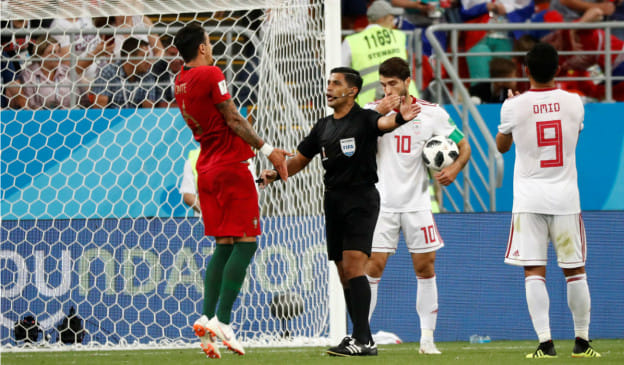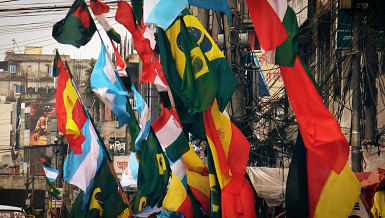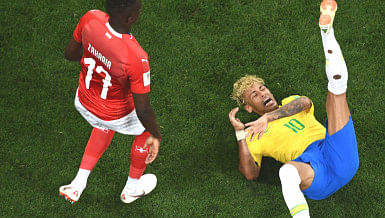With the first of the six minutes of extra time having passed, fans of Portugal could have been forgiven for thinking their 1-0 lead would hold and letting their minds wander to their potential last 16 match against hosts Russia, whose frailties against pedigreed sides had been exposed earlier in the day by a dangerous-looking Uruguay.
Even in the unlikely event that Iran found the back of the net in the remaining five or so minutes, Portugal supporters had only 10 minutes ago been further reassured of their team’s top-place finish as a struggling Spain had gone down 2-1 to Morocco in the concurrent Group B match taking place a thousand miles away in Kaliningrad.
Well, Iran did make it 1-1 as Spain made it 2-2 and roughly two minutes later, when Mehdi Taremi’s shot narrowly missed the target and cannoned into the side netting, security a few moments ago became utter panic as just a feet or two to the right would have carried Portugal players around 5,200 miles west to Lisbon and out of the World Cup.
Between the relative safety of 1-0 at 91 minutes and 1-1 at 93 were two minutes of VAR-induced drama that would make a soap opera writer proud. Iran appealed for a handball decision against Cedric Soarez in the Portuguese box, which seemed debatable at first and did not improve much upon further viewing -- except evidently to the eyes of referee Enrique Caceres, who pointed to the spot for a penalty kick after trotting off field to review the evidence.
A thousand miles away, around the same time as Iran were making their appeal Spain’s Iago Aspas was being denied an equalising goal in the 91st minute because he was ruled to be off side. Unlike in Saransk, the line decision in Kaliningrad did not need referee Ravshan Irmatov to interpret the footage and it was rightly ruled by the VAR that Aspas had been on side.
The effect of the tale of two Russian cities was that Spain finished top of the group and avoided a slippery clash with Group A champions Uruguay. The now widely panned VAR decision to award Iran a penalty may well have changed the complexion of this World Cup. Its fallout does not just affect Spain and Portugal’s last-16 chances, but if they make it through the next battle they will likely be facing widely divergent draws. If form and class hold in the remaining matches, Portugal will be in the half of the draw that includes England/Belgium, Germany, France, Argentina and Brazil rather than Japan, Mexico and Denmark -- the bracket members of Spain’s half.
Beset by confusion since the eleventh-hour sacking of coach Julen Lopetegui, it may give Spain the lifeline they so desperately need. For Portugal, who have proved in their first two matches that the model of relying on Cristiano Ronaldo for goals while the rest form a solid team was somewhat workable, life just got tougher.
Those two minutes also showed the best and worst of the system that is being used in the World Cup for the first time and is still new to football in general. Like in other sports that use video replays to make or refine decisions, such as cricket and tennis, it proved very effective in correcting a line-decision error in Spain’s case. But when it involved the referee’s interpretation in Iran’s plea for a fanciful handball, a system meant to end debate by correcting obvious errors has proven to have the potential to escalate them. It may have also ended up influencing the very path this tournament could take.




 For all latest news, follow The Daily Star's Google News channel.
For all latest news, follow The Daily Star's Google News channel. 









Leave your comments